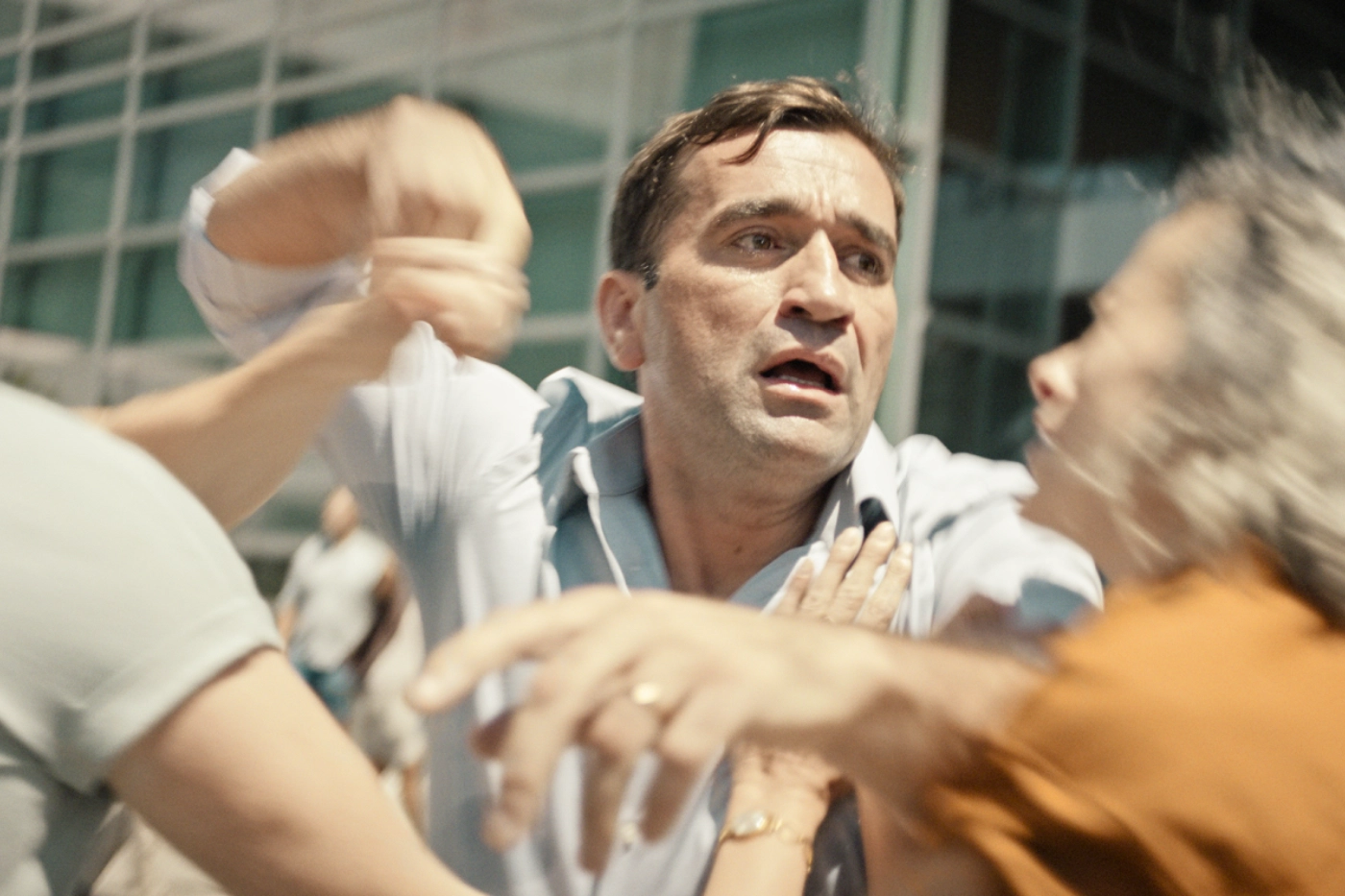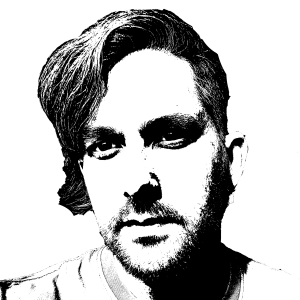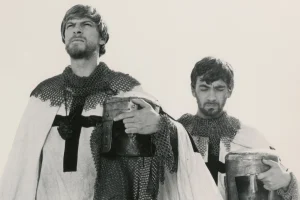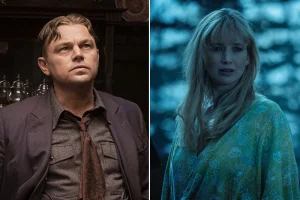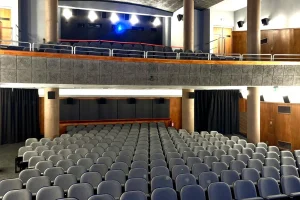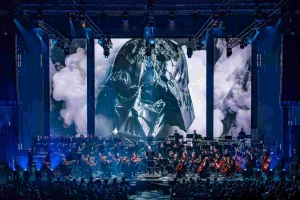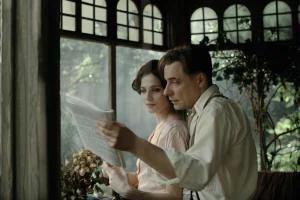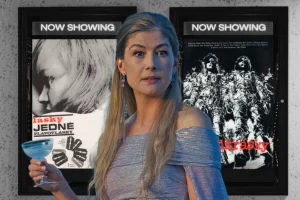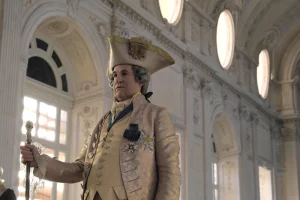A distracted business owner struggles to come to terms with an unfathomable tragedy of his own responsibility in Father (Otec), which premiered earlier this month at the Venice International Film Festival and is now playing in Prague cinemas (with English subtitles at select engagements). Slovak director Tereza Nvotová‘s follow-up to her breakout Nightsiren is impeccably well-crafted, utilizing minutes-long single takes to heighten the tension—but the real-world horror the film depicts may prove difficult to endure for most audiences.
A Slovak-Czech-Polish co-production, Father stars Milan Ondrík in the titular role of Michal, a loving husband and dad and stressed-out owner of a small newspaper who is bringing in a new numbers guy to run his failing company for him. In the scene’s bravura opening sequence, shot by cinematographer Adam Suzin in a 20-minute single take, the camera slowly tracks Michal from his morning run to the office, saying goodbye to wife Zuzka (Dominika Morávková) and dropping off his two-year-old daughter at day care along the way.
Michal settles into his workday blindly unaware, even watching family holiday videos in his office, but audiences going into the movie are (hopefully) already a step ahead of him. Even though we witnessed the father dropping off his daughter in the film’s opening scene, this has in fact not happened; outside in his car, the unimaginable is happening as Milan idly goes through his day before coming face to face with unspeakable horror.
Throughout the rest of the film, which consists of about ten scenes shot in similar long single takes, Michal attempts to come to terms with something that perhaps cannot be reconciled. We follow him through intimate scenes with his wife, a sensationalized court case, overheard conversations by colleagues. In scene after scene, he is reminded that he will forever be “that guy from Nitra,” and he will never be able to escape the tragedy that resulted from his own negligence.
We, too, have given up on this character: Father never attempts to rehabilitate Michal, but rather asks us if it is possible for him to continue living. The answer is clear. Despite Ondrík’s soulful performance here that recalls his benevolent father in Let There be Light, there is only one resolution for him that feels in any way cathartic, and the sooner we’re able get away from this character, the better.
Even Suzin’s cinematography seems to abandon Michal as the film progresses. At first close and intimate, later scenes seem to pull further and further back, and even try to escape the story; in a memorable trial scene, the camera swirls around the courtroom like a Gaspar Noé film, losing interest in the verdict and pausing by the window to take in the sounds of children across the street. As difficult as the movie is to watch, Nvotová’s composition and perspective consistently keep us invested in what is unfolding on screen.
Alongside Ondrík, a strong supporting cast led by Morávková adds layers of emotional complexity, with side characters grappling with their own feelings for Michal while confronting the consequences of his actions. Anna Geislerová makes a memorable impact in a single scene as Michal’s ex-wife, still showing compassion despite the tragedy, while Martina Sľuková portrays a colleague whose outward support masks hidden animosity.
Films in which unspeakable horror befalls infants are (thankfully) rare in cinema; A Serbian Film went so far over the top that audiences could remove themselves from the events of the film, while The Coffee Table utilized jet-black humor to create the same kind of distance. But there’s no such outlet for audiences in Father, and while it’s far less graphic than the aforementioned, every frame of the movie forces us to confront a real-world horror that occurs with frightening regularity.
Father is based on the real-life story of Jozef K., a Slovak father who left his two-year-old daughter in his car on a hot day, and was later scrutinized through a highly-public trial. While the movie makes no claim to be based in fact, it feels both faithful to the events of this particular case, as well as reflective of a very particular tragedy that has become all-too common in the modern world.
Despite the filmmaking care with which it has been crafted, there’s no joy in watching this movie, and for that reason it is difficult to recommend to almost all audiences; this is not the mainstream hit that was anticipated after Nvotová’s previous film. But no one who sees this movie will make the same mistake as its protagonist—if nothing else, the experience of watching Father is horrifying enough to leave an unforgettable impact.

